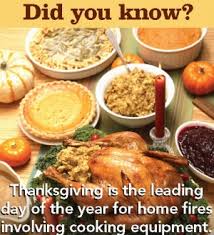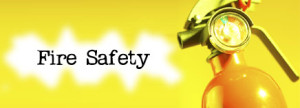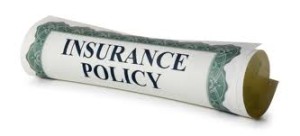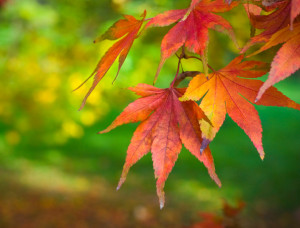Fire Safety Tips for Thanksgiving Day Cooks
Thanksgiving is a time to celebrate with family and, of course, plenty of food. Unfortunately, preparing the holiday meal can lead to disaster — Thanksgiving tops the charts as one of the peak days for home cooking fires. House fires are the worst disaster threat to families in the U.S. and the kitchen is where most fires start. With that in mind, here are some tips to keep you and your family safe this holiday:
- Avoid wearing loose fitting clothing while preparing a meal. Dangling sleeves or excess material can easily catch fire.
- Check cooking food regularly and stay in the home while cooking. Use a timer as a way to remember food is either on the stove or in the oven.
- Keep combustible items, such as pot holders/oven mitts, wooden utensils, paper/plastic bags, towels and curtains away from surfaces that generate heat. This includes appliances as well as the stove and oven.
- Be sure to have a fire extinguisher on hand and read the directions well in advance of any potential emergency so that you are ready to use it at a moment’s notice.
- Install a smoke alarm on each level on the home making sure there is one in close proximity to the kitchen.
- Keep children away from cooking areas being sure they remain at least three feet away from the stove.
- If there is a fire inside the oven, shut off the oven and leave the door shut. Call 9-1-1 and report the fire and leave the home until firefighters arrive.
- If a stove fire occurs, immediately shut off the stove and cover the burning pan/burner with a lid or use a fire extinguisher. Do not attempt to move a burning pan outside and do not throw flour, water, salt or any other substance on the fire as these can cause the fire to flare up.
- Gas or propane stoves are a common source of carbon monoxide in the home. If you are cooking for several hours, a build up of carbon monoxide may occur so be sure to run vents you may have in the kitchen and open windows/doors in the kitchen at least once each hour to allow fresh air to circulate.
Use these tips to safeguard your home this holiday and enjoy the festivities!



 So the warm, lazy days of summer are winding down and the kids are headed back to school — it’s
So the warm, lazy days of summer are winding down and the kids are headed back to school — it’s 